THE ROLES AND RESPONSIBILITIES OF PRIVATE SECTOR ACTORS IN TRANSITIONAL JUSTICE PROCESSES
The need to better understand and address the role of private actors in transitional justice processes is becoming increasingly important as these actors play a significant yet often clandestine role in the commission of serious human rights violations and related crimes. While transitional justice processes are designed primarily to address justice, accountability and reparations for serious and widespread violations perpetrated in the context of armed conflict or repressive regimes, accountability for private actors has frequently been elusive. To close the accountability gap, as well as to identify additional measures that would contribute to more comprehensive and sustainable guarantees of non-repetition, the role and responsibilities of private sector actors require a more thorough interrogation.
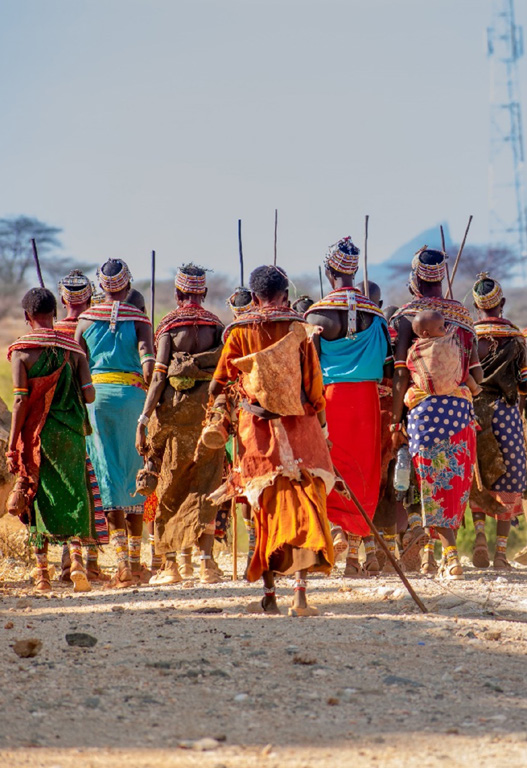
Led by the International Coalition of Sites of Conscience, the Global Initiative for Justice, Truth and Reconciliation developed a project that examined past and present transitional justice processes involving private actors, with a focus on accountability and grassroots interventions in Africa and Latin America. The primary aim of the project is to learn from past experiences while seeking to inform the design of future formal and informal processes that consider private sector actors’ roles and responsibilities in transitional justice. While the project focused on private sector accountability for grave human rights violations and related crimes, it also entailed civil society and other stakeholders providing recommendations about the ways that private sector actors could serve to promote transitional justice initiatives. The research was informed by the expertise of Consortium partners who have addressed accountability and other forms of transitional justice implementation in Africa and Latin America. The program built on lessons learned from the GIJTR’s previous Economic, Social and Cultural Rights assessment tool publication, as well as other resources.
This project included developing regional reports for Africa and Latin America that examined the private sector’s role in transitional justice; online consultations with stakeholders in transitional justice who have researched or been involved in transitional justice initiatives that included private sector actors; and the development of a summary report of the online consultations which captured lessons learned for victim and survivor groups, civil society actors and practitioners.
Goals and Objectives
Produce regional reports for Africa and Latin America about the roles and responsibilities of private sector actors in formal and informal transitional justice processes, with a focus on establishing accountability for grave human rights violations and related crimes by systematizing lessons learned from these regions for victim and survivor groups, civil society actors and practitioners.
Conduct research and produce reports on accountability of private sector actors and engagement in other forms of transitional justice in Latin America and Africa.
Generate discussion and interregional exchange among transitional justice scholars, experts, practitioners and civil society about the roles and responsibilities of private sector actors in formal and informal transitional justice processes, with a focus on establishing accountability for grave human rights violations and related crimes.
Plan and implement a workshop engaging stakeholders from Latin America and Africa for interregional discussions on lessons learned and best practices in private sector accountability and engagement in other forms of transitional justice in Latin America and Africa.
Develop an outcome or summary report on the roles and responsibilities of private sector actors in formal and informal transitional justice processes, with a focus on establishing accountability for grave human rights violations and related crimes, by systematizing lessons learned from Africa and Latin America for victim and survivor groups, civil society actors and practitioners.
Produce an outcome or summary report synthesizing research and consultations that shares examples, lessons learned and best practices in private sector accountability and engagement in other forms of transitional justice in Latin America and Africa for victim and survivor groups, civil society actors and practitioners.
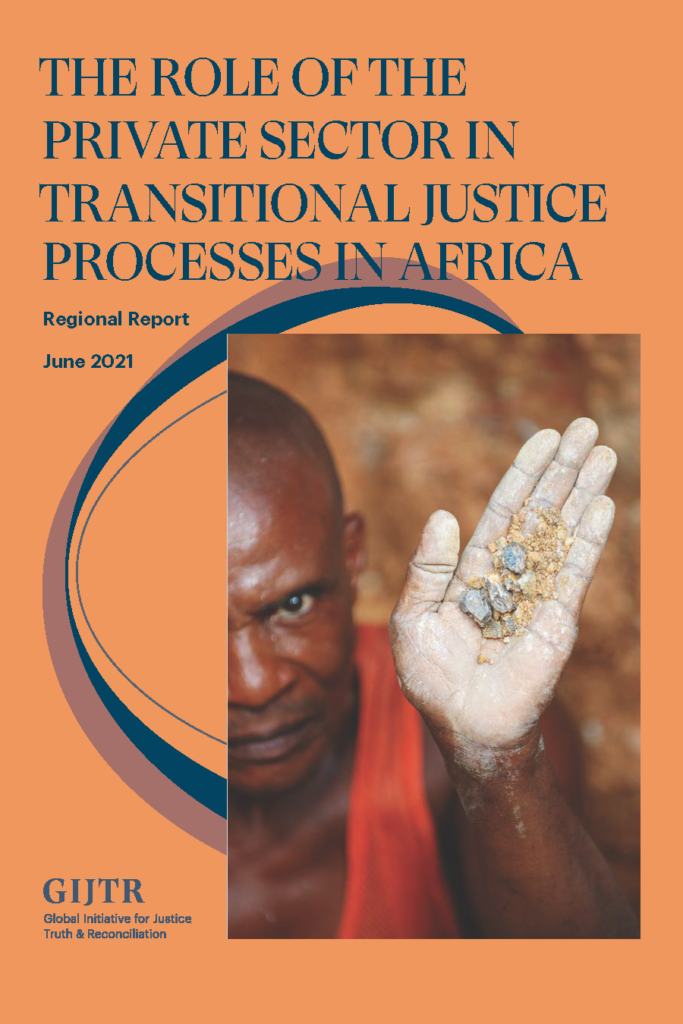
The Role of the Private Sector in Transitional Justice Processes in Africa
The present report is the product of a 2021 GITJR consortium project led by the International Coalition of Sites of Conscience (ICSC), which sought to examine past and present transitional justice processes involving private actors, with a focus on accountability for grave human rights violations and grassroots interventions in Africa and Latin America. The primary aim of the project was to learn from past experiences while seeking to inform the design of future formal and informal processes that consider private sector actors’ roles and responsibilities in transitional justice.
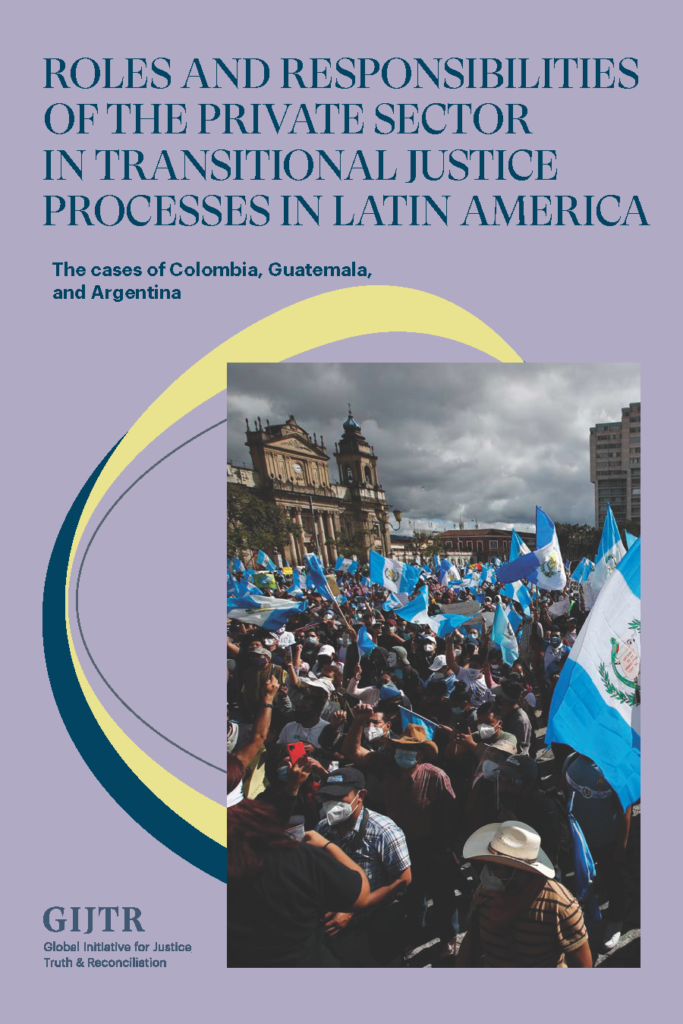
Roles and Responsibilities of the Private Sector in Transitional Justice Processes in Latin America
Roles and Responsibilities of the Private Sector in Transitional Justice Processes in Latin America: The cases of Colombia, Guatemala, and Argentina provides an overview of corporate complicity in the perpetration of grave human rights violations during some of the most notable periods of repression and conflict in those countries, and considers how the issue of private sector involvement has been addressed by both official and unofficial transitional justice mechanisms. This report presents lessons learned for the ongoing efforts to promote accountability, and considers the obstacles that remain.
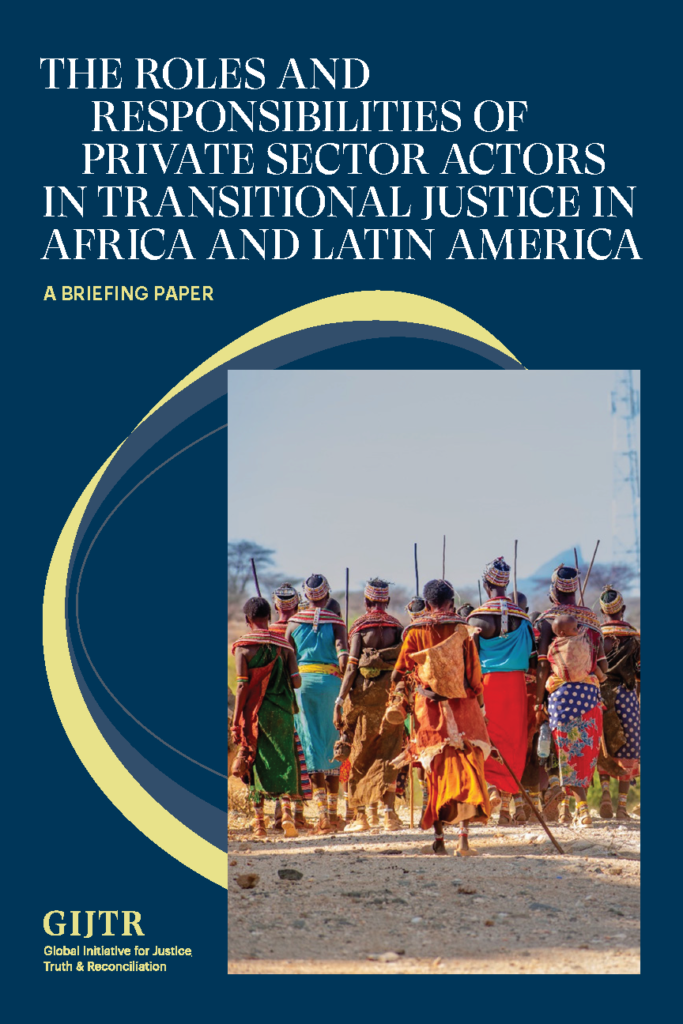
The Roles and Responsibilities of Private Sector Actors in Transitional Justice in Africa and Latin America
Released in September 2021, this briefing paper on The Roles and Responsibilities of Private Sector Actors in Transitional Justice in Africa and Latin America is part of a larger initiative led by the International Coalition of Sites of Conscience (ICSC), which seeks to examine past and present transitional justice processes involving private sector actors, with a focus on accountability for grave human rights violations and grassroots interventions across the two regions. Global Initiative for Justice, Truth and Reconciliation (GIJTR) Consortium partners, the American Bar Association Rule of Law Initiative (ABA ROLI) and the Due Process of Law Foundation (DPLF) contributed immensely to this project through the initial regional research on transitional justice processes in Africa and Latin America, which were released in separate publications earlier this year.
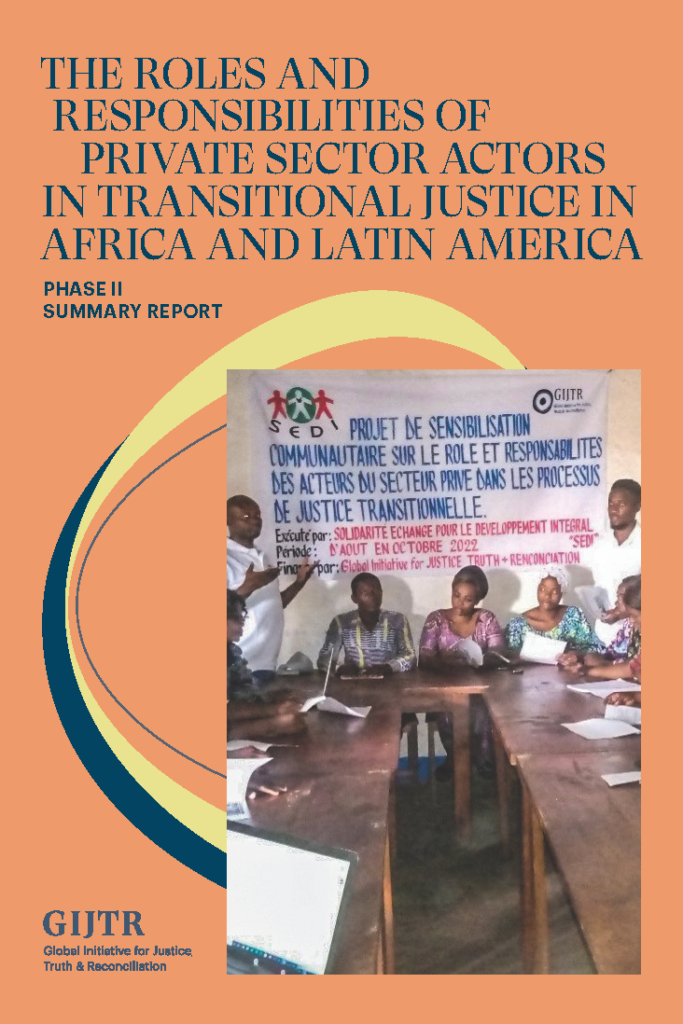
The Roles and Responsibilities of Private Sector Actors in Transitional Justice in Africa and Latin America
Released in January 2022 , this summary report, The Roles and Responsibilities of Private Sector Actors in Transitional Justice in Africa and Latin America: Phase II, is part of a larger initiative led by the International Coalition of Sites of Conscience (ICSC), which examines past and present transitional justice processes involving private sector actors, with a focus on accountability for grave human rights violations and grassroots interventions across the two regions. Global Initiative for Justice, Truth and Reconciliation (GIJTR) Consortium partners, the Centre for the Study of Violence and Reconciliation (CSVR) and the Due Process of Law Foundation (DPLF) contributed immensely to this project's second phase, building on lessons learned in Phase I.
